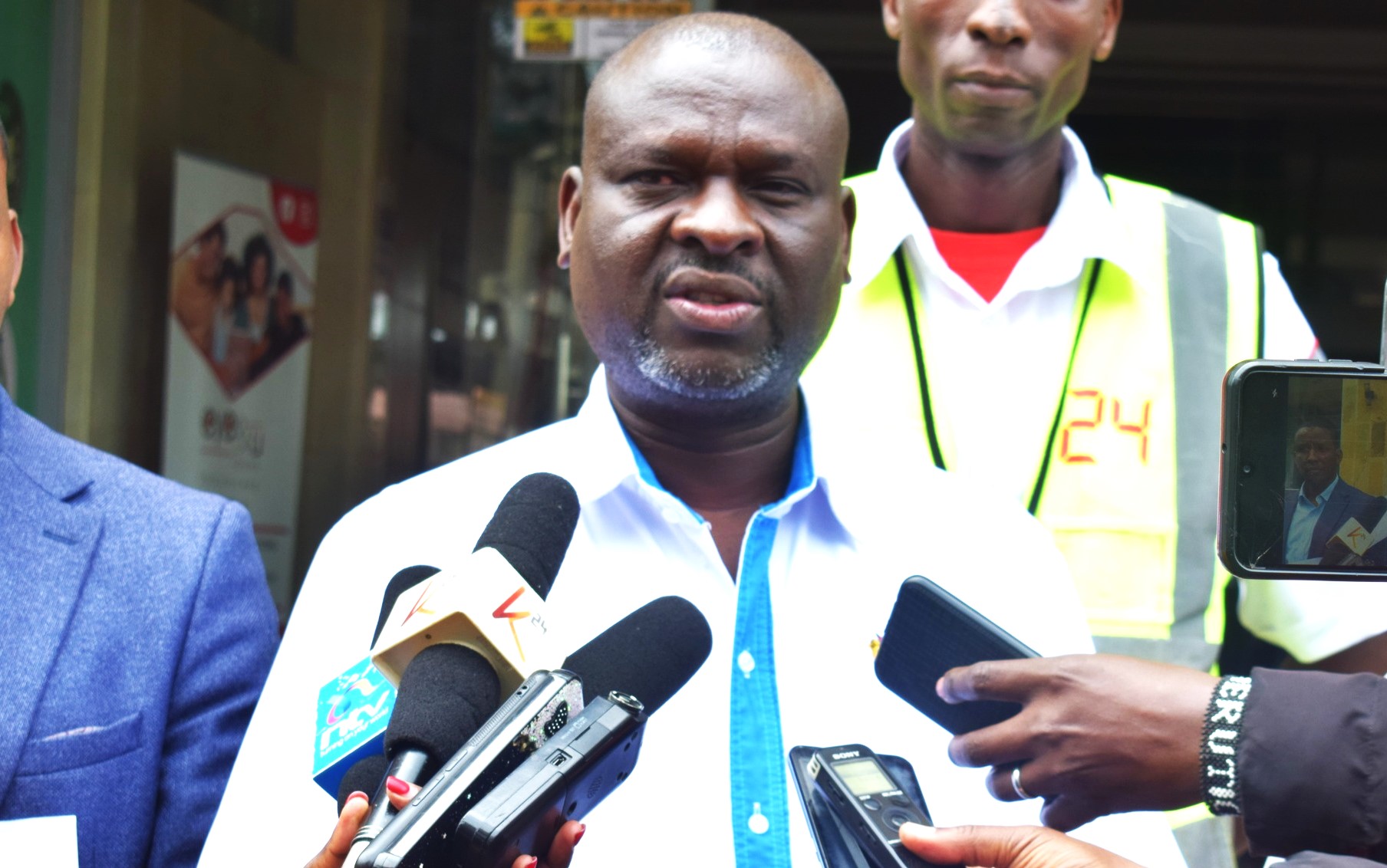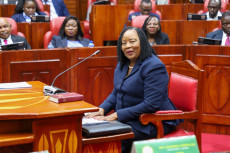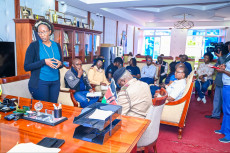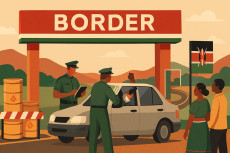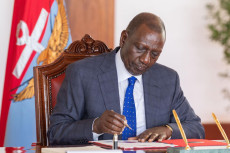- In a move indicating a sign of regression to the times when affront to human rights is not a thing in the country, Collins Olunga, an AFP journalist in Nairobi, was injured by a teargas canister fired at him by police and taken to the hospital.
The Independent Police Oversight Authority-IPOA Nakuru office, has confirmed that investigations over shooting of Nakuru based journalist Wanjeri Kariuki, who reports for Kameme FM, is underway.
In a press briefing sought by Nakuru based journalists on July 29, 2024, while presenting a P3 form, Mr Josephat Kaimenyi the assistant Nakuru Regional Director, said that they have talked to the police to serve them with necessary information to further facilitate the process.
“We are glad to receive the P3 form. It is a very central document to fastrack the process, we also talked to the county commandant last week to provide necessary documents. When the investigations are complete, we will forward the file to the Office of the Director of the Public Prosecution,” Kaimenyi said.
On his side, Dr Farah Ibrahin the assistant director in charge of investigation at IPOA, said that they have not faced challenges with police so far, and that they have assured them of cooperation.
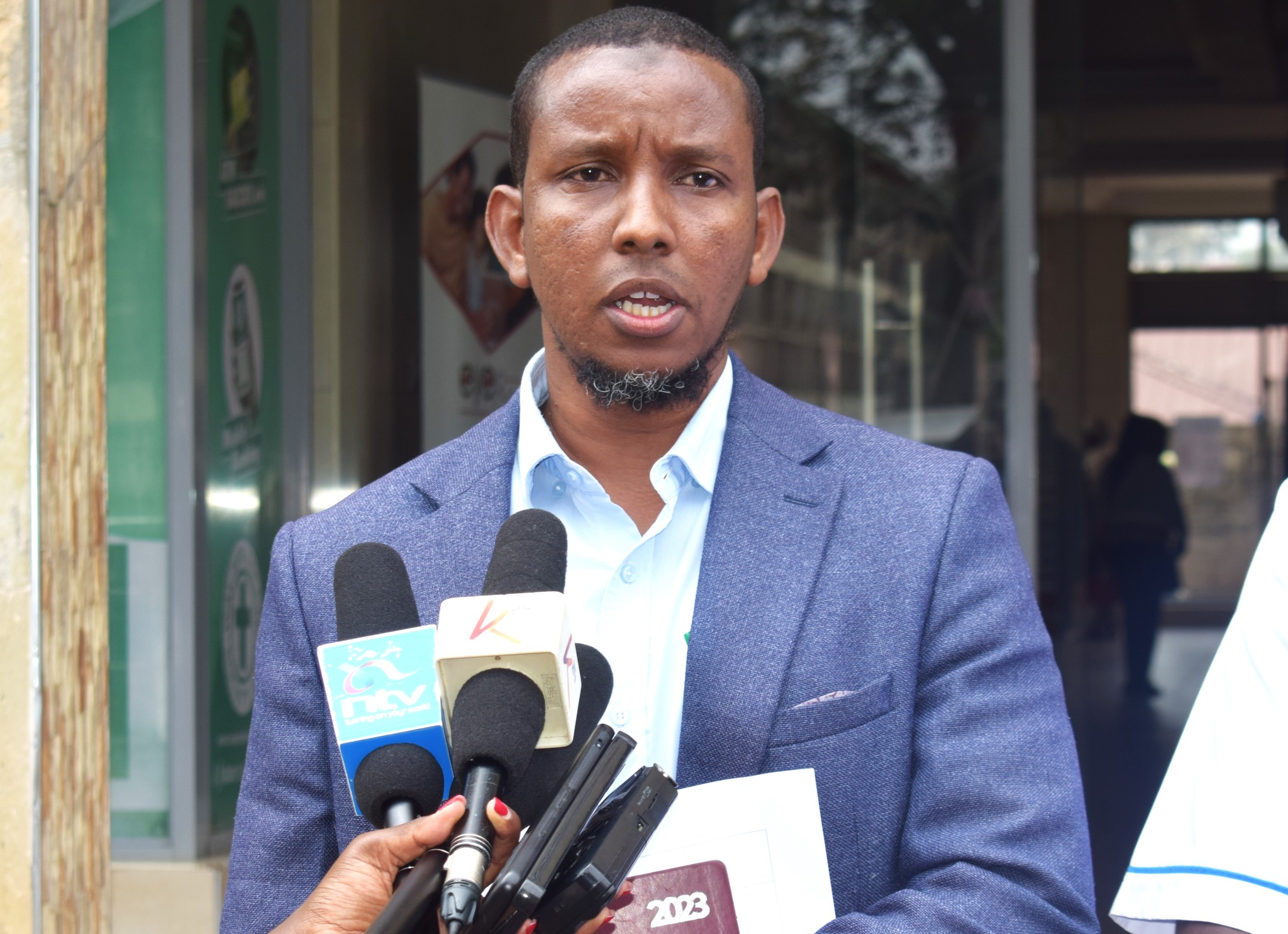
Read More
However, he called on the members of the public who witnessed the gory incident to come forward and record statements to help with the investigation. The agency says that they have done 80 percent of the investigation on this case; only a small bit remains before the file is presented to the Office of the Director of Public Prosecution (ODPP).
He is grateful that witnesses for this case came out to record statements, and promised to conduct thorough investigations to ensure Wanjeri’s right is served.
Mr Joseph Openda, chairman of the Nakuru Journalists Association, said that the association is glad that the process is moving well so far. He urged the County Commandant to cooperate with IPOA in this matter.
. Photo by Daniel Kipchumba.jpg)
“I call upon the Nakuru police County Commander to cooperate with IPOA in this case by providing the necessary information and document. This will show a sign of good relationship we have had overtime,” Openda said.
While speaking at the media briefing, Wanjeri Kariuki said she is recovering well physically compared to how she was on 16th July, when a rogue trigger-happy police officer shot her thrice.
“I am calling on IPOA to speed up the investigations so that I can get justice. That will heal my heart and protect my fellow journalists in the industry,” she said.
Currently, Wanjeri is using clutches to walk and will be out of office for several months thus impacting on her career and economic wellbeing. After being discharged from Nakuru Annex Hospital, where she underwent successful surgery to remove the bullets lodged in her left outer thigh, she has since relocated back to her parent’s home in Kiambu County for support.
 a Nakuru based Kameme FM reporter outside IPOA offices. She was shot thrice by a police officer while covering GEN- Z protests in Nakuru. Photo by Daniel Kipchumba.jpg)
Several journalists were attacked and brutalized by police while covering a nationwide demonstration in Nairobi, Kenya's capital, on June 25, 2024, as Parliament discussed the Finance Bill 2024/2025 that would raise taxes. The International Federation of Journalists (IFJ) and its affiliate, the Kenya Union of Journalists (KUJ), denounced police brutality against journalists who were simply doing their jobs and urged relevant authorities to protect press freedom.
In a move indicating a sign of regression to the times when affront to human rights is not a thing in the country, Collins Olunga, an AFP journalist in Nairobi, injured by a teargas canister fired at him by police and taken to the hospital.
John Omido, a Kenya Broadcasting Corporation (KBC) photographer, was doused with water mixed with toxic chemicals, a powerful mixture intended to disperse demonstrators.
Justus Mwangi from The Standard was apprehended, forcibly loaded into a police car, and then hurled from the speeding vehicle. Maureen Muthoni of Nation Media Group was injured and arrested.
The protests had been arranged to express opposition to a proposed Finance Bill that seeks to raise an additional USD 2.7 billion in taxes as part of efforts to reduce Kenya's massive debt burden.
The Kenyan government threatened to shut down the Kenyan Television Network to restrict the media and prevent journalists from doing their jobs. Senior Communications Authority (CA) executives directed television signal carriers to turn off KTN after the station broadcast images of protestors assaulting Parliament.
According to the Kenya Media Sector Working Group (KMWSG), in a statement, more than 20 journalists and media workers have been attacked or subjected to press freedom violations. This has been both offline and online since the beginning of protests on March 20, 2023, including physical assault, broken equipment, harassment, and arbitrary detention. Journalists were attacked by the security forces who were supposed to protect them.
Among the casualties were two Royal Media Services journalists who were physically beaten, as well as two Africa Uncensored journalists who were detained before being released by authorities. The protesters violently assaulted two journalists from Agence France Presse (AFP) and CGTN, the Chinese broadcaster.
The police compelled one Nation TV journalist to delete her protest recordings, while another, Eric Insita, was hurt and sent to the hospital for treatment. Citizen TV journalists were also attacked.
The political and economic circumstances heavily influence respect for press freedom in Kenya. The assassination of a Pakistani journalist in October 2022 brought to light the threats that media workers confront in this country.
The 2010 Constitution guarantees press freedom, but the twenty or so acts and legislation that govern media in Kenya contain numerous clauses that call into question the fundamental principles of press freedom.
The 2018 Computer Misuse and Cybercrimes Act, for example, allows for up to ten years in prison and up to a Ksh 5M fine for spreading "fake news" that is likely to incite violence. Despite the passage of legislation governing access to public information, it remains extremely difficult.

